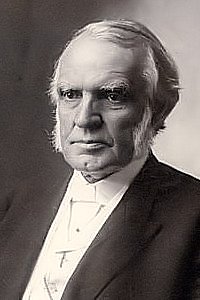Introduction
Born: October 11, 1836, Athens, Ohio.
Died: December 20, 1906, New York City.
Buried: Rosehill Cemetery, Chicago, Illinois.

Born: October 11, 1836, Athens, Ohio.
Died: December 20, 1906, New York City.
Buried: Rosehill Cemetery, Chicago, Illinois.

Charles was the son of tailor Robert McCabe and Sarah Robinson, and brother of Robert Robinson McCabe (1834–1901), a Chicago publisher who issued a number of Gospel song books.
His grandfather, also named Robert McCabe, was an early Methodist Class-Leader and advisor to John Stewart, a pioneer of American Methodist missions.
Ancestor Owen McCabe was of Covenanter stock from County Tyrone, Ireland. He emigrated to America in the 1740s, and by 1750 was in Sherman’s Valley of Cumberland County, Pennsylvania, an area that eventually (1820) became Tyrone Township of Perry County, Pennsylvania.
Charles went to the altar at eight years of age under the pleading of Saint
Minturn. He was appointed to lead a class at the age of fifteen.
In 1854, McCabe enrolled at Ohio Wesleyan University, where his uncle, Lorenzo Dow McCabe, was a professor. Though Charles withdrew from school in 1858, he graduated with a BA degree in 1860 and was given an honorary MA in 1864. He then became a high school principal.
As the American civil war broke out, McCabe helped raise an infantry regiment for the Union Army. By October 8, 1862, he was chaplain of the 122nd Ohio Infantry.
He was captured by the Confederate Army and sent to the infamous Libby Prison in Richmond, Virginia, where he served as a chaplain to his fellow prisoners.
During his time as a prisoner of war, McCabe taught The Battle Hymn of the Republic to other prisoners to maintain high spirits, and was later invited to the Lincoln White House because of his actions. Ill health forced him to resign his chaplaincy on January 8, 1864.
After the war, McCabe lectured all over America on The Bright Side of Life in Libby Prison.
Before entering the Episcopacy, he served on the Christian Commission as a pastor and as the Church Extension Secretary. He was a missionary promoter, evangelist and Gospel singer.
McCabe also served as Chancellor of American University from December 1902 until his death. He was especially prominent in the university’s initial fund raising. Indeed, he thought of himself as doomed to raise money,
in such high demand he was as a raiser of funds for churches.
Also known as Methodism’s Singing Chaplain,
from coast to coast he sang We’re building two a day,
a song written in response to the charge the church was dying out, made by Robert G. Ingersoll, a widely known agnostic of the day.
McCabe fell ill in New York City after a fund raising trip to the Methodist Episcopal Church of Torrington, Connecticut, and died in a New York Hospital.